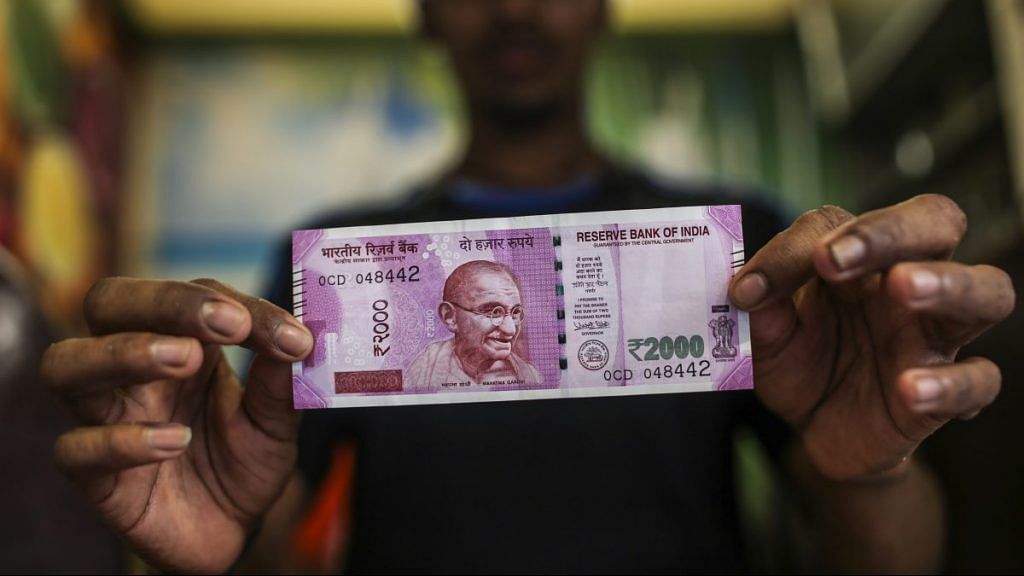New Delhi: Three years after the Narendra Modi government banned Rs 500 and Rs 1,000 notes, an online survey has found that “though digital transactions are increasing year over year, a large number of people still prefer cash payments over digital transactions”.
The survey by LocalCircles, a social networking site for civic cooperation, said while the overall use of cash as a primary mode of transaction reduced by 30 per cent from 2018, the percentage of people buying properties through cash rose from 50 per cent to 57 per cent this year.
The survey, released Friday, also found — contrary to the Modi government’s intentions — “the 2000-rupee note has made it easier for people to keep cash in stock”.
The “use of cash in the Indian economy does not seem to be reducing” since only 12 per cent of respondents said they don’t make any payments in cash, the survey stated.
The respondents in the survey numbered over 50,000 from more than 200 districts across the country.
21% said note ban reduced black money
The survey comes at a time when India is faced with a slowing economy, which has been attributed, in part, to the cumulative effects of demonetisation and the imposition of the Goods and Services Tax.
Despite this, 42 per cent of the respondents, when asked what they thought the biggest benefit of demonetisation was, “said it brought a large number of evaders in the tax net”. As many as 21 per cent said note ban reduced black money in the economy and 12 per cent said it increased direct tax collections.
Only 25 per cent of the respondents felt demonetisation had no benefits at all.
Asked about the negative impacts, “32% said it was loss of earnings for many unorganised sector workers and 2% said it was sizable migration of labour to villages. 33% said the biggest negative impact of demonetisation is the economic slowdown, while 28% feel it had no negative impact”, the survey stated.
11% want Rs 2,000 note to be banned
Asked what measures the government should take to immediately reduce the circulation of black money in India, respondents recommended mandatorily linking property ownership with Aadhaar (29 per cent), “immediately” banning the Rs 2,000 note (11 per cent) and levying a 2 per cent tax on all cash transactions above Rs 10,000 (5 per cent).
“Six per cent said detailed scrutiny should be done of all individuals with a Swiss Bank account. 42% said disclosure of all assets of all Ministers and Government employees and their families should be made mandatory,” the study stated.
Also read: PM Modi never took responsibility for demonetisation ‘faux pas’, says Sonia Gandhi
